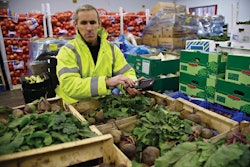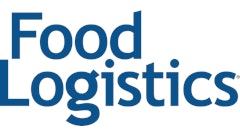A bill that would exempt foods produced and sold in New Hampshire from federal food safety regulations is running into opposition from some of the very groups the bill says it would help.
A hearing on House Bill 1650 is scheduled for Friday. Sponsored by Rep. Josh Davenport, R-Newmarket, the measure would establish a "Made in New Hampshire" brand for foods that are grown or produced in the state.
Under the bill, so long as those foodstuffs were labeled as being "Made in New Hampshire" and sold only within the state, they would be subject only to state regulations and exempt from federal regulations.
Bill sponsors say it would promote the state's agricultural economy, help small farmers and expand access to fresh, healthy foods.
But the New Hampshire Farm Bureau Federation, which represents the interests of farmers in the state, has come out in opposition to the bill, which it said "goes too far."
"There does need to be some oversight, and we recognize that," said Rob Johnson, executive director of the Farm Bureau.
In writing the bill, he said, "they really haven't talked to the farmers on this."
The bill comes on the heels of the federal Food Safety Modernization Act, which President Obama signed into law early last year. That law expanded the power of the Food and Drug Administration to inspect food-processing plants and to order mandatory recalls of tainted foods.
It also required food facilities to identify potential hazards and develop food safety plans to mitigate the risk of contamination.
"The real concern here is that we have all manner of onerous federal regulations coming down the pike that are making it illegal to do certain types of business in this state," said Rep. Andrew Manuse, R-Derry, who co-sponsored and helped write HB 1650.
After much lobbying by smaller food producers, the new federal law included an amendment that exempted small producers that sell the majority of their food locally and make less than $500,000 in revenues a year.
But despite the exemption, small producers in New Hampshire could still feel some of the negative impacts of the federal legislation, including a regulation on seed cleaning that could substantially drive up the costs of seeds for small producers, said Davenport.
Manuse said the "Made in New Hampshire" label is about recognizing the state's sovereignty.
Added Davenport: "The state of New Hampshire is perfectly capable of ensuring the safety of its own small farms and food production businesses."
While the bill is well meaning, whether it could actually be enforced is another question, said Lorraine Merrill, the state's agriculture commissioner.
"I think the intentions are good -- I think the sponsors are trying to promote New Hampshire agriculture and farm products and make a favorable business climate for them, and we appreciate that," said Merrill. "But we have some concerns about how it could actually play out."
Those concerns, she said, "relate to food safety and the reputation of New Hampshire food and products."
Merrill also called into question just how enforceable the bill would be, since it would be difficult to stop farmers along the border from selling their food out of state.
All it would take is for one of these "Made in New Hampshire"-labeled foods to be contaminated and make someone sick to damage the reputation of all food made in the state, said Johnson of the Farm Bureau.
The "Made in New Hampshire" brand is also of concern to Trish Ballantyne, executive director of New Hampshire Made, because of the likelihood that consumers would confuse the two.
"We feel that an unintended consequence of this bill could be a devaluation of the New Hampshire Made brand that has been building for 15 years," said Ballantyne, adding that there are about 800 members of the organization that are reliant on the brand.
"That brand stands for not only authentic local product, but it means quality, and we're concerned that in their desire to deregulate New Hampshire products, by labeling them 'Made in New Hampshire,' it's going to cause a great deal of confusion."
The state Department of Health and Human Services is not taking a firm position on the bill, but does have some questions about it, said Michael Dumond, chief of the state Bureau of Public Health Protection.
Of concern to that department is whether it would be an additional burden on their resources, especially "at this time with the budget situation," he said.
"That's one of the questions we have -- does it mean by default the state would pick up oversight and regulations of items that were previously regulated by federal statutes?" said Dumond. "That's not really clear to us."
"I understand where they're coming from -- I just don't think it's even what the producers want," said Ballantyne. "I think that it's very important, especially with food and any consumables, that we don't need to be regulated to death, but I think to have certain things in place makes a lot of sense."



















